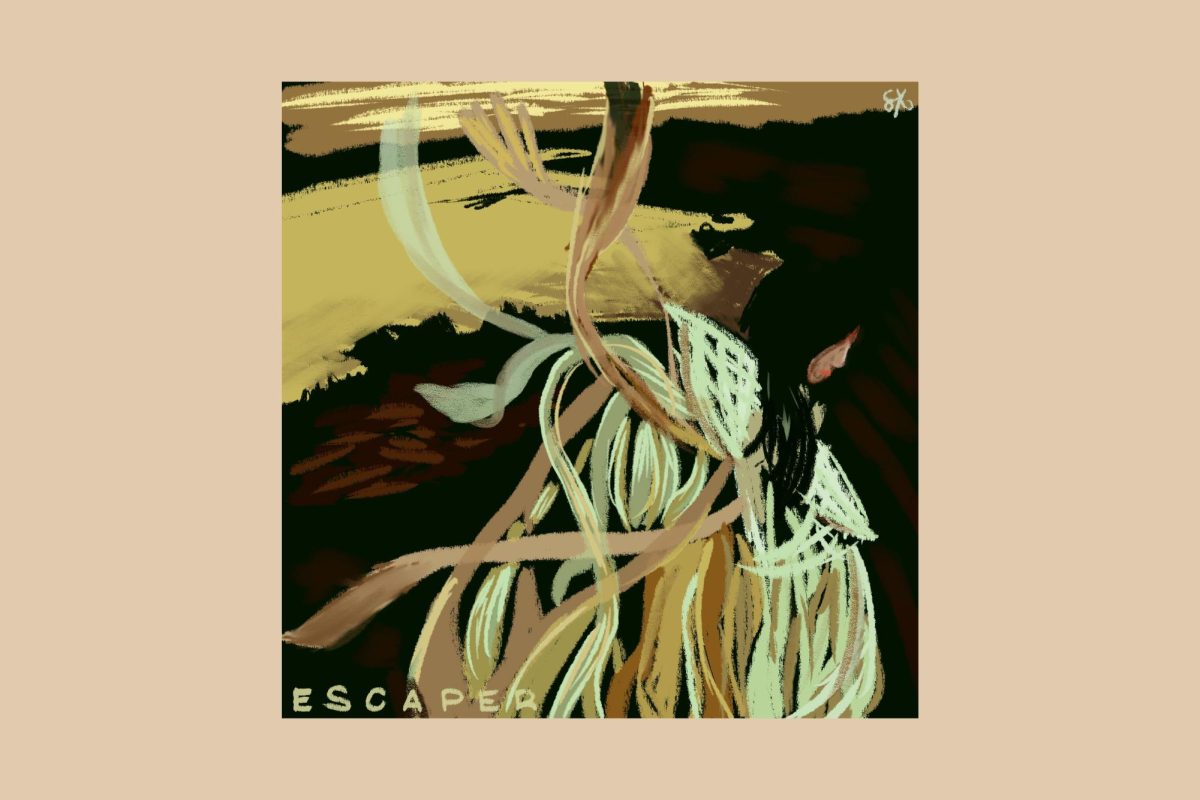It was only fitting that I listened to Sarah Kinsley’s first single for her debut album, “Escaper,” before embarking on an escape of my own — a plane ride. I downloaded the song “Last Time We Never Meet Again” and spent the next hour staring out the window, accompanied by Kinsley’s ethereal crescendos.
Kinsley, a New York-based artist, released her debut album on Sept. 6. After her single, “The King,” went viral on social media in 2021, she has since gifted her listeners yearly EPs: “The King,” “Cypress” and “Ascension.” Her discography draws on her roots as a classically-trained pianist and violinist; she blends sweeping orchestral backings with dream pop influence, all against honest lyricism. “Escaper” embodies her distinctly cinematic style and unapologetic reflection, each song a wonderfully relatable glimpse into universal themes of heartache, passion, friendship and grief.
“Last Time We Never Meet Again” is Kinsley’s reclamation of self following a breakup, in which she bids a triumphant, final farewell to a past lover. “I hope I hear your name and I feel absolutely nothing,” she laments, while also honoring the times when the couple would “sit and dream of other lands / Off to save the world from its own hands.” The song is heartbreaking yet victorious, capturing the feeling of a once-valuable connection meeting eternal closure.
In “My Name is Dancing,” Kinsley depicts venerative longing with lines like, “I had a name before we met / But all the letters never sat right / But on your tongue, I see them dancing / On your lips, they come alive.” The rawness she describes is poetic, tangible and a feeling familiar to anyone experiencing an all-consuming crush. Her descriptions of yearning range from elaborate personifications to dramatic confessions and simple musings. In the same song, Kinsley admits, “To be in love may very well be the first time we die,” and in “There Was a Room,” sings “You, beautiful you / And the things that I would do if you looked at me.” She communicates lovesickness as a collision of hopelessness and love, pervading into the way someone utters a name and seeping into both the grandiose and mundane.
She remarks on steadfastness found in friendship in “Starling,” alluding to a marriage pact: “We’ll be fine if we’re still here at 45 / If you don’t marry someone, then neither will I.” Even when highlighting the truest form of platonic love, Kinsley evokes heartache with a naive clinging to the ephemeral present, one that maturity and reality will inevitably disrupt.
To any New Yorkers, her mention of “the lights in the city scene / To the nights in the fever dreams / To the cries in the taxi, it’ll be alright” in “Knights” evokes the feeling of a night out on the city, sprawling out its endless possibilities. As she sings these lyrics, the music shifts beyond elegant piano and strings, introducing a drumbeat and experimental instrumentals. It feels as if those lines open an entire sequence of memories – reminders of a time of being “too young / Too dumb, too in love.” As a student in New York, I can’t help but wonder if I’ll look back on my nights in the city through the same bittersweet reflection.
Curiously, during my introduction to the album on that plane ride, I was not heading to some foreign destination, rather, I was on a flight back to my hometown. Perhaps that’s what “Escaper” is all about — a returning to yourself, a reflection inward. To escape takes a new form when soundtracked to Kinsley’s work — escaping is not evasion, rather, it is a metamorphic personal journey.
Contact Sydney Chan at [email protected].


























































































































































